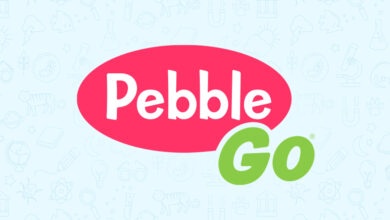How Does Reading Every Day Impact Your Brain – A Brief Guide

We have one question for you: how many times have you told yourself that you would want to read more? Instead of grabbing a book, you turned to Netflix and started to binge-watch your favorite seasons. What happened to all of your motivation before?
The best way to get started with reading is to understand what reading does to your brain. Once you know the positive changes brought out in your brain by reading, you will be more than happy to put aside every other entertainment and focus on reading alone.
Read on to learn more.
How Does the Brain Respond to Reading Books?
You might be wondering about the scientific reason behind reading and what actually happens when you read. Now, usually, when you start to read, you see all sorts of patterns and shapes on the page. The patterns and shapes that you see on the page are then sent back to your brain, where you process the images, shapes, and symbols into information.
Your brain then proceeds to recognize letters and words. This information then moves on to the frontal lobe and its adjacent areas, where you work out the actual meaning of the words as well as how they are pronounced.
Now, if you are an experienced reader, then this entire process will take less than one second. Yes, you read this right. It takes even less than half a second to decipher the text and transform it into meaning if you are an experienced reader.
How Does Your Brain Benefit from Reading?
Suppose you read thirty pages a day. In this case, your brain responds to your reading habit by having more activity in the left temporal lobe the next morning. When it comes to the left temporal lobe of the brain, you should know that you can find memory in this area.
Countless studies have indicated that by reading more books, you can actually decrease the risks of developing dementia later in life. Reading books is also connected with emotional regulation. This aspect perfectly explains why many people report that reading books helps with reducing stress and anxiety.
On that note, you might want to start with reading poetry. Take haiku poems as an example, where you can get an entire story through a few words. Poems are great for emotional regulation as they allow you to exist in the safe space that they offer simply.
It wouldn’t be wrong to state that poetry allows a much-needed break from the fast life and ensures that you get emotional and mental relief as you absorb the poems and look at the world from the perspective of the poet.
What we mean is that if you want to improve your cognitive skills and the way your brain responds to events, you should work on building a habit of reading.
Always Start Small
If you are reading this, the chances are high that you haven’t been an avid reader until now. The important question to ask yourself is how you can proceed to develop a habit of reading that you can follow with consistency.
Now, the key is to start small. If you want to stick to a habit with consistency, you cannot take a big leap from the very start. You need to start small, which is why we recommend reading poetry. If it is a book, then stick to two pages a day first before you feel comfortable enough to move on to a chapter.
The underlying key is to trick your brain into thinking that you have already read something today, so you might read just a bit more. You will be surprised to experience the power of starting small as you will be leveraging it later in the day to ignore Netflix or social media and pick up your book to read a few more pages instead.
Keep Track of Your Readings
When you have established the habit of reading daily, you might come across stories, non-fiction, and poems that have inspired you in some way or another. But – after a few weeks, you have certainly forgotten about what you read and the particular thing that inspired you altogether.
You can make a list of your readings or simply use Kindle to highlight the parts that resonated with you the most. You can store or bookmark pages that appeal to you the most. This way, you can always get back to those excerpts later when you feel like re-reading them.
Stick to A Schedule
To develop a reading habit that you are more likely to stick to in the long run by setting a timetable or a schedule that you solely dedicate to your reading. For instance, you could make it a habit to read every day right before bedtime.
Or, you could make it a habit to read a book while you have your morning coffee instead of scrolling social media. It doesn’t matter how many pages you read or what you read – the point is that you should be reading something.
Take A Break when Necessary
Now, there might be days when you feel too tired to open a book right before bedtime. It is okay to give yourself a break on those days, but you must do your best to stick to your newly developed reading habit for most of the days.
So, it all comes down to starting small. You don’t have to read the world’s encyclopedia – though it might not be a bad idea, bits of nice mellow poetry would do as well. Build an archive of all the things that you have learned from those books. Lastly, you should set reading times that you will actually stick to.
Final Thoughts
Reading will make you smarter and improve your focus. Reading poetry can help you develop emotional intelligence and empathy. To take things a notch higher, you might want to develop the habit of journaling as well. The best thing you can do is to make a to-do list for the next day so you can stay productive. Write in your journal every day before bedtime, reviewing your day and how you spent it.




